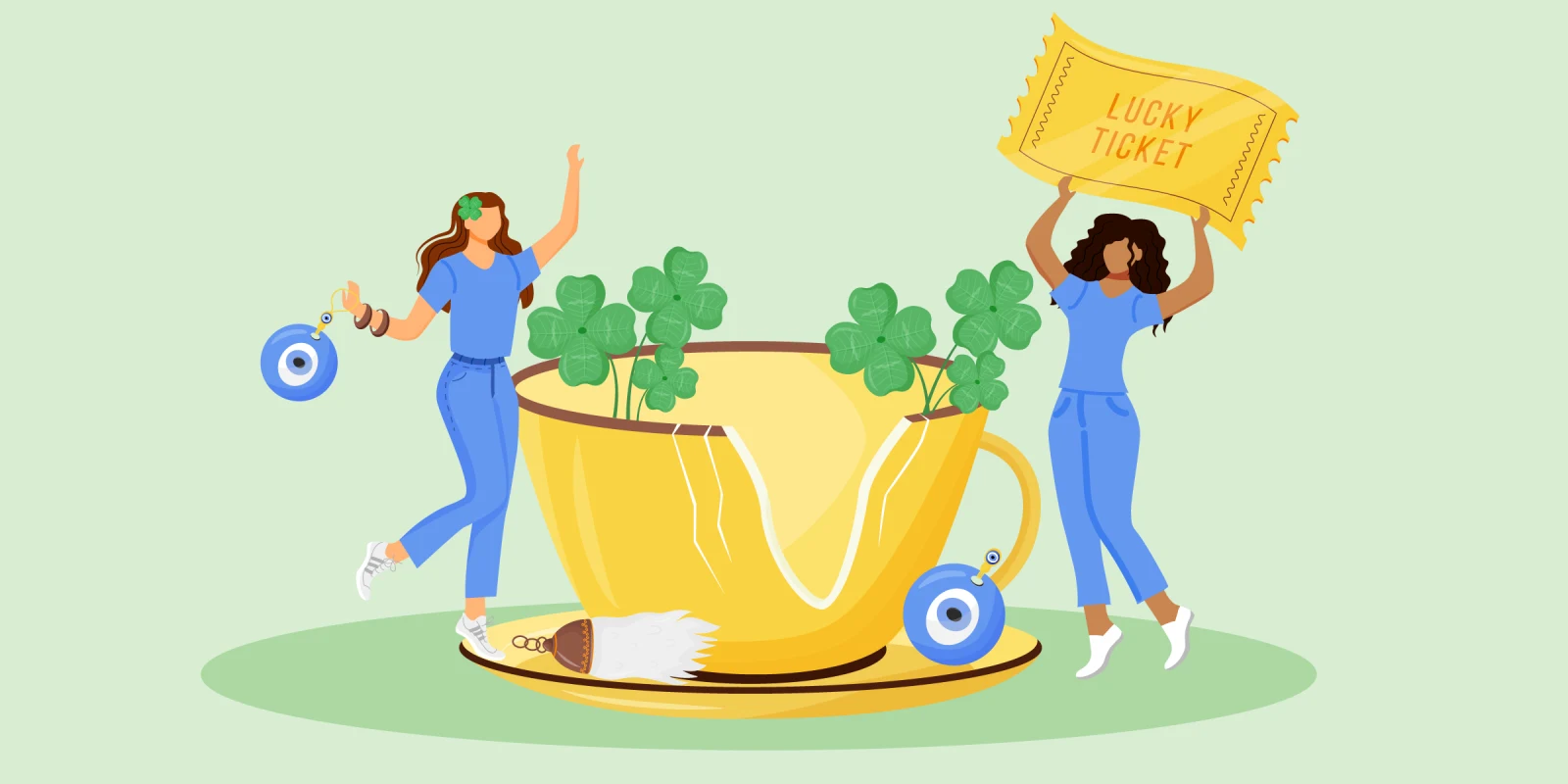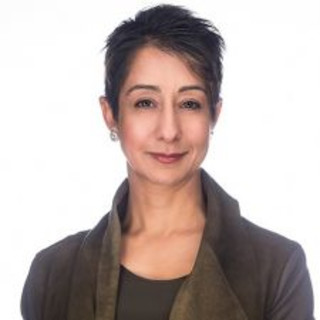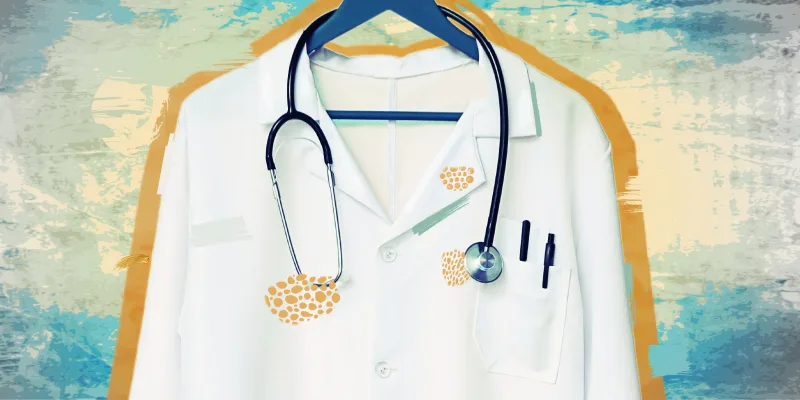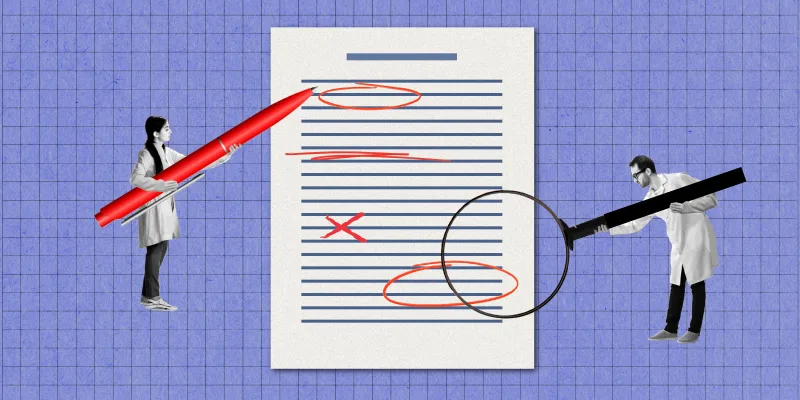As I arrived at my office for a clinic day, I realized I wasn’t wearing my friendship bracelet, which my patient concierge/front desk coordinator had made and given out to the entire staff to commemorate a particularly trying clinic day. The bracelet has an explicit mantra written on it that allows me to sublimate my frustration when something goes awry; since that particular clinic day, wearing it has come to provide additional security and confidence that the day will go well. When I realized I didn’t have the bracelet, my heart sank, and anxiety arose. As a surgeon, I prefer being in the OR and dread clinic days. And as I expected, that particular clinic day sucked — which I attributed to my superstition that the bracelet gives me power.
Following this event, I reflected on my various superstitions. I know I’m not the only physician to have them — just look at the pervasive idea in medicine that a full moon means an increase in ED patients, or the widespread fear of saying the words “quiet” or “never” lest the “gods” be tempted. In my subspecialty, microsurgery, physician superstitions have even been studied clinically — and the survey found that superstitions in this specialty are prevalent. Is such superstitiousness among physicians a contradiction, given that medicine is based on the hard facts of anatomy and physiology? Or is there really something about the cosmos that affects the realm below, including the realm of science?
For me personally, superstitiousness has been a default mode long before my career in medicine. As a child, for example, I used to believe that if I wasn’t completely under the blankets at bedtime, a monster would come up from the toilet and eat me. To this day, I enjoy the comfort of my duvet, wanting to be completely enveloped in it — regardless of how hot I am. Humans, not just physicians, rely on superstitions to give us predictability and answers to the unknown. Positive outcomes will reinforce these superstitions — every day that I woke up safe from the toilet monster reassured me. Later, as a teenager, I regularly slept with my textbooks under my pillow prior to a test. I believed that if I did so, I could ensure that the acquired knowledge did not leave my brain. When I aced a test, I attributed it to this nightly ritual.
Years later, when I became a physician, other superstitions replaced those of my childhood and adolescence. In my early years of practice as a microsurgeon, I would associate any successful outcome I had with the earrings, necklace, shoes, even the underwear that I wore that day. And if things went poorly, I would discard those same items and shove them into the back of my closet.
In a similar vein, I never presumed that the end of a case meant that I wouldn’t be seeing my OR staff until the next OR day — the one time I said “Have a great week!” at the end of a micro case, we were back in the OR in a matter of hours due to the flap going down with a thrombosed vein. Following that event, I started to say “Hope to not see you tonight.” I didn’t want to anger the “micro gods” again and risk having to return to the OR with my flap.
One may wonder: If medicine is scientific, and therefore black and white, how can we let superstitions guide our choices? Further exploration suggests that perhaps medicine isn’t as scientific as we believe. A look at the origins of medicine, in fact, suggests the field was often based on feeling or intuition as much as fact. For example, before medicine became evidence-based, it was left to traditional healers who performed rituals or gave herbal remedies — some even with good results. Medical history also reveals that in the middle ages, disease was explained as an imbalance between the “four humors” of yellow bile, black bile, phlegm, and blood. So, is it that surprising that contemporary physicians try to attribute the influx of hysteria to the full moon?
In thinking through the place of superstitions in medicine, I’ve come to understand that while medicine is based in science, it is also based in art. We physicians deal with humans every day, and humans are unpredictable. So when something doesn’t go as planned, we want to understand why — was it me, was it you, was it the full moon, was it the absence of my lucky charm?
But superstitions have a dark side: While they may make you feel more secure, they can do the opposite when unheeded. That clinic day when I didn’t have my bracelet, I wanted to turn around. But what would have happened if I’d gone home to get it? I would have been late for work, my patients would have been waiting, and the exact outcome that I’d sought to avoid would have happened — a disastrous clinic day with unhappy patients.
And yet, on the days when I do wear my bracelet, I walk into the clinic feeling powerful. I carry myself differently, behave differently, and can approach the issues or challenges that are thrown my way in a more confident manner. So is it the talisman itself or how I feel with the talisman?
This feeling, created by the superstition, can be powerful — but it’s important not to over-rely on it. For example, one can look at the full moon and be concerned that our patients will be crazy that day, thereby increasing one’s stress levels, or one can look at the full moon and be reminded that anything can happen, thereby keeping things in perspective.
Ultimately, the challenges of medicine are not in our control — what is in our control is our response to these challenges. Maybe it’s just that the act of going through the motions (putting on the bracelet, saying the right phrase, etc.) sets my mind at ease, which then has a positive effect on how I perform. Or maybe it’s all random. What I can say for certainty is this: If I’m prepared for the worst, it’s not that the worst never happens — it’s that it stops being the worst, because I’m able to handle it.
As I strive to understand and accept that I can control my actions and cannot control those of others, I learn that I don’t need good luck charms, mantras, or superstitions. The power in the bracelet did not lie in the bracelet itself, but rather in the giggle and smile it would elicit from me when I would see it — allowing me to turn the tables on a trying encounter. The next time I forget my bracelet, I plan to just run my hand over my empty wrist and remind myself of the strength that I have within me.
Do you have any medicine-related superstitions? Share them in the comments!
Dr. Anureet Bajaj is a plastic surgeon in private practice in Oklahoma City, Oklahoma. She enjoys running, painting, and spending time with her dogs and family. Her IG handle is @bajajplasticsurgery. Dr. Bajaj was a 2022–2023 Doximity Op-Med Fellow.
Image by Nataliia Nesterenko / Getty Images







